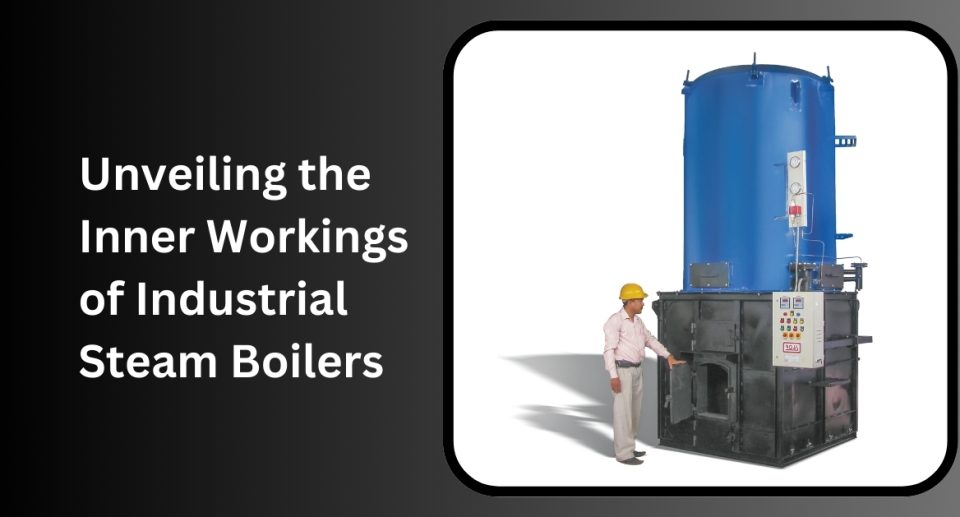Industrial steam boilers are the unsung heroes of numerous industries, working tirelessly behind the scenes to produce steam that powers a myriad of processes, from manufacturing goods to generating electricity. This guide delves into the world of industrial steam boilers, simplifying complex concepts to help you understand their significance and function.
Table of Contents
ToggleWhat is an Industrial Steam Boiler?
Imagine a gigantic pot on a stove, but instead of boiling water for cooking, it’s producing steam for industrial applications. That’s essentially what an industrial steam boiler does. It’s a specialized vessel designed to heat water and produce steam, which is then utilized for heating, generating electricity, and operating machinery in factories and plants.
How Do Industrial Steam Boilers Work?
The core function of industrial steam boilers lies in their ability to convert water into steam using heat. Here’s a simplified breakdown of the process:
-
Combustion: Inside the boiler, there is a combustion chamber where fuel (such as natural gas, oil, or coal) is burned.
-
Heat Transfer: The burning fuel releases heat, which is transferred to water in pipes or tubes surrounding the chamber.
-
Steam Generation: As the water heats up, it transforms into steam, which is then ready to be utilized in various industrial processes.
Components of an Industrial Steam Boiler
Industrial steam boilers are sophisticated machines comprised of several essential components:
-
Combustion Chamber: The area where fuel combustion occurs, releasing necessary heat.
-
Heat Exchanger: This component transfers heat from the combustion chamber to the water.
-
Boiler Shell: The sturdy outer layer that houses all internal components and ensures safety.
-
Steam Drum: Functions as a storage tank for steam, ready for use as needed.
-
Safety Valves: These release excess pressure to prevent accidents, acting as safety mechanisms.
-
Controls and Instrumentation: The system’s “brain,” monitoring and adjusting operations to maintain optimal performance.
Types of Industrial Steam Boilers
There are two main types of industrial steam boilers:
-
Fire Tube Boilers: These boilers have water-filled tubes that are heated by hot gases passing through them. They are ideal for smaller operations.
-
Water Tube Boilers: In these boilers, water flows through tubes surrounded by hot gases. They are better suited for larger-scale applications, like power plants.
Applications of Industrial Steam Boilers
Industrial steam boilers are versatile tools used across various industries:
-
Heating: Providing warmth in buildings, heating water, and powering radiant systems.
-
Power Generation: Producing electricity in power plants by turning turbines with steam.
-
Manufacturing: Facilitating production processes in industries such as automotive and textiles.
-
Food Processing: Sterilizing equipment, cooking food, and pasteurizing products in the food industry.
-
Pharmaceuticals: Ensuring cleanliness and sterilization in pharmaceutical manufacturing.
Importance of Industrial Steam Boilers
Industrial steam boilers are crucial for modern industry, powering numerous processes that keep our world running smoothly. They enhance productivity, maintain product quality, and reduce environmental impact by optimizing fuel and technology use.
Selecting a reliable manufacturer is essential for ensuring the quality and efficiency of industrial steam boilers in Dubai, UAE. For those looking for a dependable steam boiler manufacturer, Ross Thermal is a notable option, known for their commitment to innovation and customer satisfaction.
Conclusion
Industrial steam boilers may seem complex, but their primary function is straightforward: converting water into steam to drive our world. Understanding their basic principles and components helps us appreciate their vital role in various industries. As technology progresses, industrial steam boilers will continue to evolve, becoming even more efficient and sustainable for future use.





